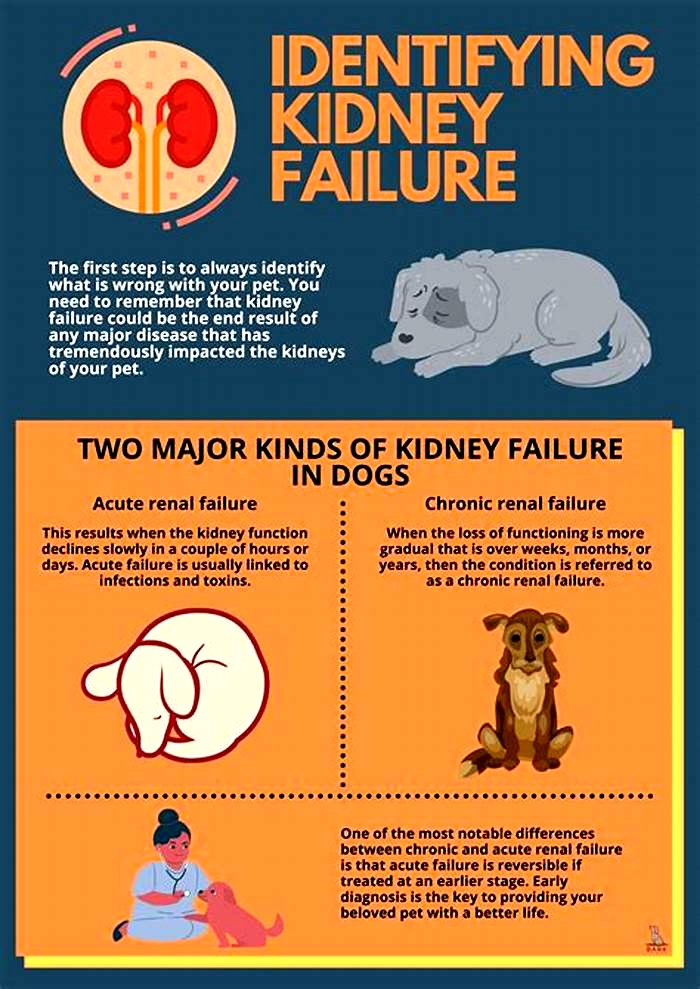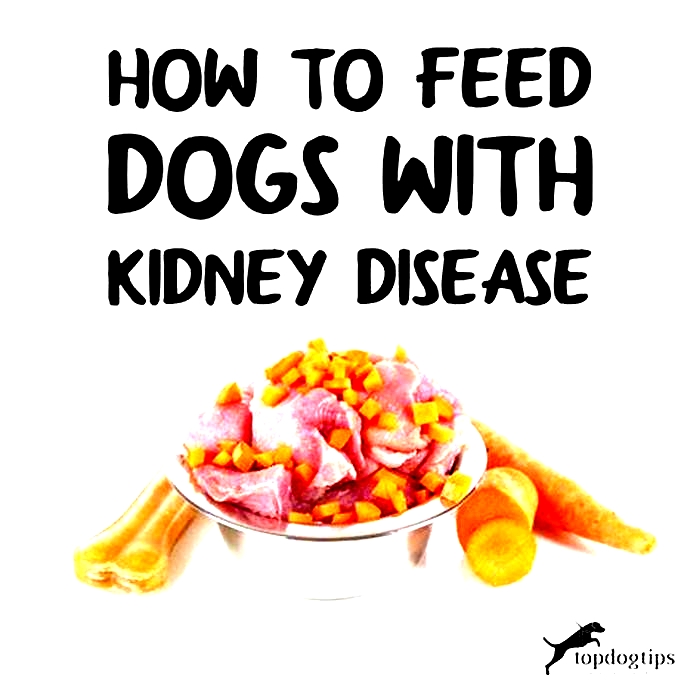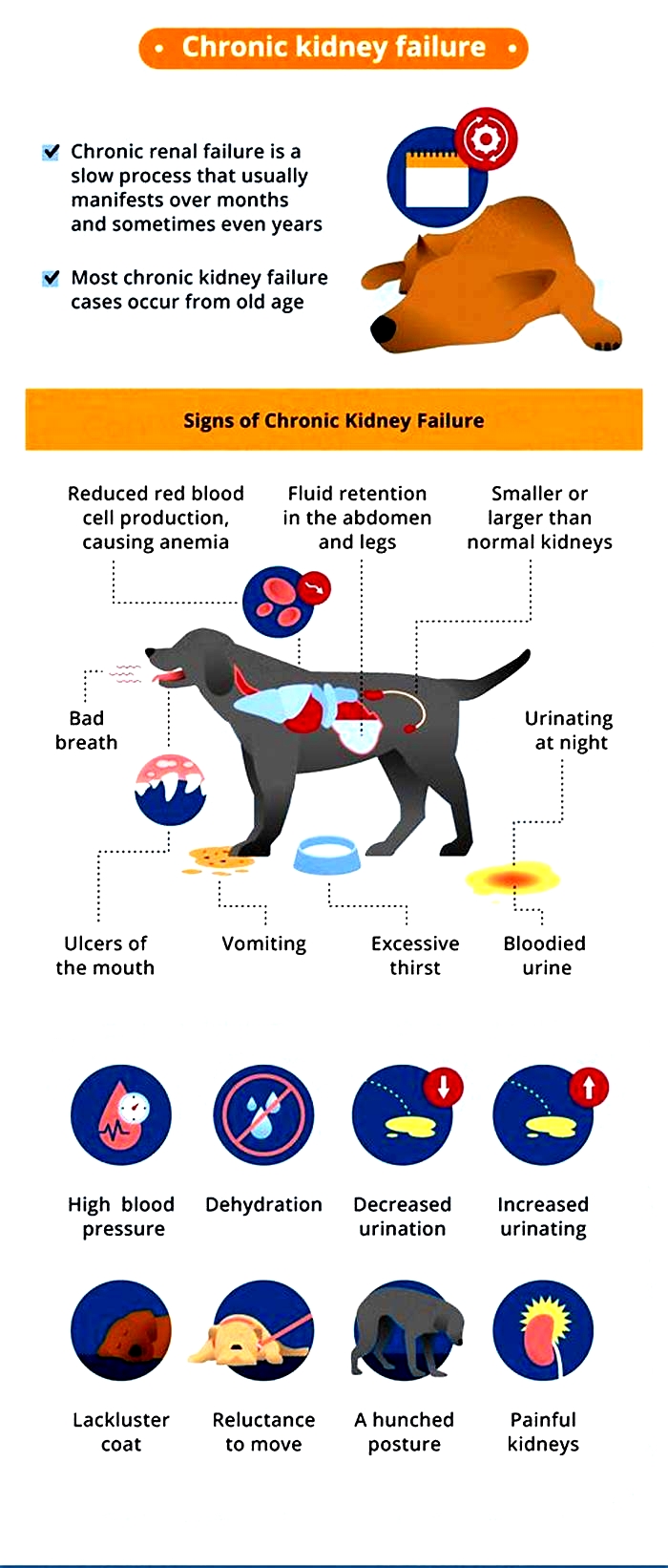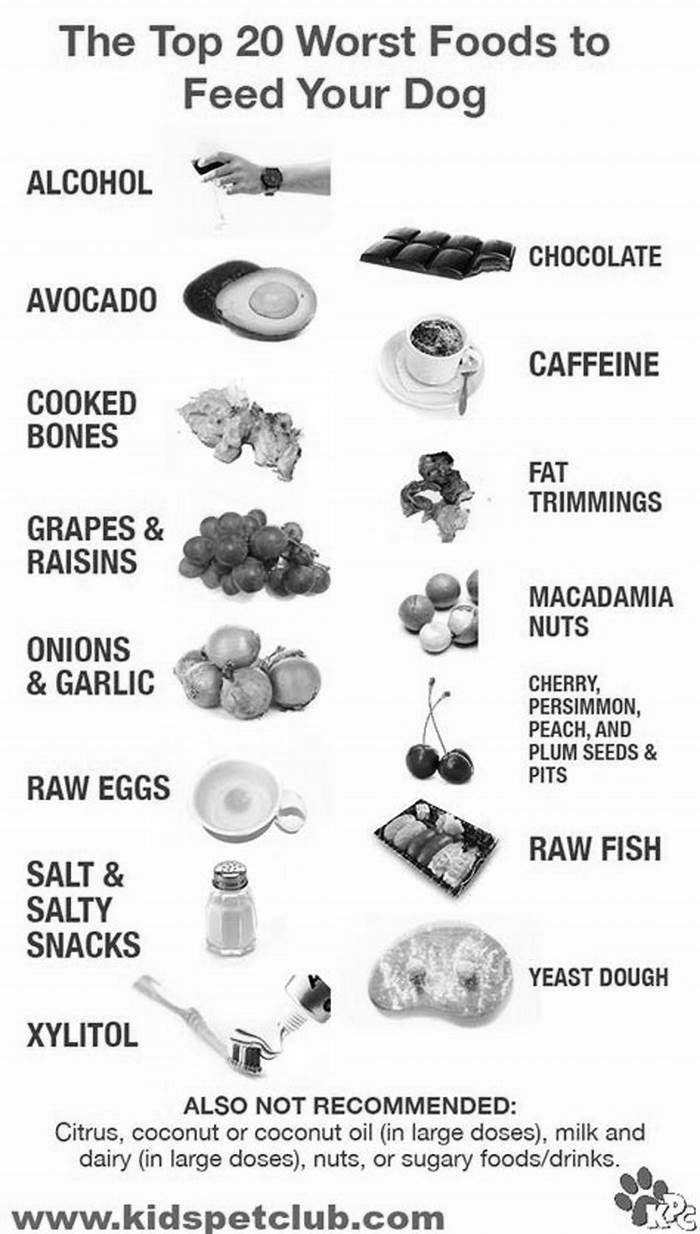How to avoid kidney problems in dogs

4 Signs of Kidney Problems in Dogs (And What to Do)
Dog kidneys have the same important role as human kidneys. They maintain the balance of certain substances in the blood and remove the toxins from the dog's body through urine. They also have a part in controlling blood pressure and produce a hormone responsible for the production of red blood cells.
These are a few of the most important functions that kidneys perform, and when they dont work properly, toxins can build up in the blood and cause significant health issues, some of which may even be fatal. Here are some of the signs of kidney problems in dogs, how to prevent them, and what to do about them.
Signs of Kidney Problems in Dogs
It's not easy to spot some of the symptoms of your dog's kidney issues. However, if you do notice any of the below, take your dog to the vet for a check-up and a more accurate assessment.
1. Urinary Problems
Increased urine production and, consequently, excessive urination are the most common symptoms of kidney issues. This is usually followed by increased thirst.
In some cases, bladder problems, blood in urine, and/or inability to hold urine (urinary incontinence) can also be present. Your dog might even have accidents if he feels the need to urinate at nighttime.
If you notice that your pooch is drinking more water than usual or needs to pee more often, you need to check the reason behind it.
2. Appetite Changes
While appetite changes can be a sign of many different health problems, loss of appetite can also be a symptom of kidney problems. Vomiting can also be present.
If your dog seems to eat less or not eat anything at all, take him to the vet because that can signal some serious issue, even if it is not related to kidneys.
3. Oral and Dental Problems
Mouth sores and pale gums are often caused by kidney problems. Bad breath (halitosis) with a chemical odor can also be a sign of kidney disease. Oral ulcers are a common sign in the later stages of kidney failure, and you should react fast if you notice them.
4. Behavioral Changes
Kidney problems can lead to lethargy and depression. There might also be symptoms of neurological problems, such as loss of coordination and stumbling when walking.
What Causes Kidney Problems in Dogs?
There are many risk factors when it comes to chronic kidney problems in dogs, according to the International Renal Interest Society (IRIS):
- Breed Some breeds are at higher risk of kidney problems than others, like Bull Terriers, Boxers, Spaniels and Chinese Shar Pei.
- Age Kidney disease and other kidney problems are more frequent in older dogs, but they can also start at a young age.
- Drugs Some medications, or rather therapeutic agents, are believed to impact the development of chronic kidney disease, such as sulfonamides, amphotericin, polymyxins, etc.
 Chronic kidney problems usually develop slowly and are often caused by some underlying illness or hereditary and congenital conditions. The most prevalent ones include cardiac diseases, urethral obstruction, hypercalcemia, infectious diseases, and particularly dental disease.
Chronic kidney problems usually develop slowly and are often caused by some underlying illness or hereditary and congenital conditions. The most prevalent ones include cardiac diseases, urethral obstruction, hypercalcemia, infectious diseases, and particularly dental disease.
In fact, advanced dental disease is caused by bacteria that can enter the bloodstream and attack multiple organs in a dogs body, including the heart, liver, and kidneys. Stress can also contribute to the development of kidney problems.
Kidney problems can also be caused by ingestion of toxins, which cause rapid kidney failure in a matter of days, but this is acute kidney injury, not chronic. Some of the dangerous toxins include antifreeze, tainted foods, medications, etc.
How Are Kidney Problems Diagnosed?
Your vet will start with a simple physical examination. Taking your dog to regular vet checkups is a good way to discover possible kidney problems at the earliest stage.
If the physical examination shows any signs of potential kidney problems, further testing is necessary for a proper diagnosis. This may include blood tests, infectious disease testing, diagnostic imaging, and kidney sampling.
How to Prevent Kidney Problems?
Kidney problems that come as a result of poisoning can be prevented by making sure that your dog doesnt have access to hazardous substances, both inside and outside the house. Avoid giving your dog any medications without consulting your vet first. Provide fresh water for your pooch at all times, and dont let him eat anything that might have gone bad.
Chronic kidney health issues can also be prevented in some cases. Since dental disease is the most common cause of kidney problems, proper oral hygiene can minimize the risk of kidney disease or failure. An appropriate, healthy diet can also help. Feed your dog high-quality food and make sure he is always hydrated.
How to Treat Kidney Problems?
 The treatment of kidney issues in dogs will depend on the type of the problem and the severity of it. It is also important to properly identify the cause of kidney problems.
The treatment of kidney issues in dogs will depend on the type of the problem and the severity of it. It is also important to properly identify the cause of kidney problems.
If there is an underlying health problem that affects the kidneys, treating that issue can reverse the kidney-related problem. The best results in all cases are achieved when signs are spotted at the earliest stages, so take your dog to the vet at the earliest sign of trouble.
Some of the most common ways to treat kidney problems include medications that increase the production of urine, and generally monitoring the output of urine. Fluid therapy is crucial in treating dogs with kidney failure in order to prevent dehydration caused by large amounts of water released from the body.
Management of high blood pressure and abnormalities considering blood electrolytes are also utilized when necessary, as well as medications for gastrointestinal problems and especially vomiting. In some particularly dire instances, dialysis or even an organ transplant might be the only solution.
Dietary Changes
Appropriate nutrition and a kidney-friendly diet are needed to manage and improve the health of your dogs kidneys. This means avoiding dry and highly processed foods that cause dehydration. Reduce the number of high-quality proteins and give your dog foods with high moisture content.
 Restrict the phosphorus intake or keep it down by adding calcium and dark, leafy greens. Use probiotics to help the body get rid of toxic waste and increase the number of good bacteria in your dogs intestines.
Restrict the phosphorus intake or keep it down by adding calcium and dark, leafy greens. Use probiotics to help the body get rid of toxic waste and increase the number of good bacteria in your dogs intestines.
It can be difficult to notice signs of kidney problems in a dog, but it is crucial to know what they are. Take your dog to the vet immediately if you notice increased thirst and urination in your dog or other symptoms like weight loss or mouth sores. Starting the treatment early is important and includes dietary changes, medications, and proper hydration.
READ NEXT: Feeding Dogs With Renal Disease and Kidney Issues
Dietary Guidelines for Dogs with Chronic Kidney Disease (CKD)
To provide the best experiences, we use technologies like cookies to store and/or access device information. Consenting to these technologies will allow us to process data such as browsing behavior or unique IDs on this site. Not consenting or withdrawing consent, may adversely affect certain features and functions.
The technical storage or access is strictly necessary for the legitimate purpose of enabling the use of a specific service explicitly requested by the subscriber or user, or for the sole purpose of carrying out the transmission of a communication over an electronic communications network.
The technical storage or access is necessary for the legitimate purpose of storing preferences that are not requested by the subscriber or user.
The technical storage or access that is used exclusively for statistical purposes.The technical storage or access that is used exclusively for anonymous statistical purposes. Without a subpoena, voluntary compliance on the part of your Internet Service Provider, or additional records from a third party, information stored or retrieved for this purpose alone cannot usually be used to identify you.
The technical storage or access is required to create user profiles to send advertising, or to track the user on a website or across several websites for similar marketing purposes.
Kidney Disease in Dogs: Signs, Symptoms, and Treatment
Your dogs kidneys are essential organs that filter waste products from the bloodstream. When the kidneys are weakened, either by acute or chronic kidney disease, your dogs health could suffer. Because kidney disease progresses over time, its important to learn the common symptoms so tha you can recognize them. If you catch kidney disease in dogs early on, treatment can slow down the progression and allow your dog to live longer.
What Is Kidney Disease in Dogs?
Kidney disease in dogs is sometimes called renal or kidney insufficiency because it occurs when a dogs kidneys stop doing their job as efficiently as they should. The main job of the kidneys is to help clear and excrete waste products from the blood and convert them to urine, says Dr. Jerry Klein, Chief Veterinary Officer for the AKC. If the kidneys are not working properly, these waste products can build up in the blood, causing detrimental effects.
Dogs can get either acute kidney disease, which develops suddenly, or chronic kidney disease (CKD), which develops slowly and worsens over an extended period. Both involve loss of kidney function, but they result from different circumstances. Acute kidney disease is a sudden attack or injury to the kidney, whereas chronic kidney disease is a slow, degenerative loss of kidney function, Dr. Klein explains.
What Causes Kidney Disease in Dogs?
Dr. Klein warns that kidney disease could be caused by a lot of things, including infection (such as with the bacteria that causes leptospirosis), trauma, genetics, drugs, toxins, cancer, mechanical obstructions (like kidney stones), and degenerative diseases (where the job and form of the affected body part get worse over time). Anything that decreases blood flow to the kidneys, such as dehydration or heatstroke, can cause the kidneys to fail.
Acute kidney disease in dogs can be caused by exposure to hazardous materials, including toxic plants such as lilies, certain drugs, harmful foods such as grapes or raisins, or antifreeze. Puppy-proofing your home and yard can keep your dog away from potentially harmful items or foods that could be toxic.
Chronic kidney disease in dogs is also associated with growing older. Because kidney tissue cant regenerate once its damaged, the kidneys can wear out over time. As small-breed dogs often live longer than large-breed dogs, they tend to show early signs of kidney disease at an older age10 years old or more, compared to as young as 7 for the large breeds.
What Are the Symptoms of Kidney Disease in Dogs?
The earliest signs of kidney disease in dogs are increased urination and therefore increased thirst. Other symptoms dont usually become apparent until about two-thirds of the kidney tissue is destroyed. So, in the case of CKD, the damage may have begun months or even years before the owner notices. Because of this, its common for the signs of kidney disease in dogs to seem like they came out of the blue when in fact, the kidneys have been struggling for a long time.
Other signs of chronic kidney disease in dogs to watch for include:
Dr. Klein says there are some rarer symptoms of kidney disease in dogs to be aware of, as well. On occasion, there can be abdominal painurinary obstructions or stonesand in certain instances, one can see ulcers in the oral or gastric cavity. In extreme cases, little or no urine is produced at all.
What Are the Stages of Chronic Kidney Disease in Dogs?
Kidney disease in dogs is measured in stages. Many veterinarians use the IRIS scale, which has four stages. Blood work measurements like creatinine and SDMA (biomarkers for kidney function) allow your vet to assign your dog to a particular stage which will determine the exact treatment.
Dr. Klein explains, The stages determine how well the kidneys can filter waste and extra fluid from the blood. As the stages go up, the kidney function worsens. In the early stages of CKD, the kidneys are still able to filter out waste from the blood. In the latter stages, the kidneys must work harder to filter the blood and in late stages may stop working altogether.
How Is Kidney Disease in Dogs Treated?
Dialysis (a medical procedure that removes waste products and extra fluid from the blood) is far more common in humans than in dogs, although peritoneal (kidney) dialysis can be performed in some cases. On rare occasions, surgical kidney transplant is possible in dogs.
But Dr. Klein specifies that depending on the type and stage of kidney disease, the main treatments for CKD are diet changes and administration of fluids, either directly into the veins (intravenous) or under the skin (subcutaneous). The balancing and correction of electrolytes are extremely important in the management of kidney patients, he explains.
Proper nutrition is needed, and there are many available diets formulated for cats and dogs with kidney issues, some by prescription only. Your veterinarian can help guide you to the most appropriate diet for your pet.
Because kidney disease, particularly in the late stages, can cause a dog to lose their appetite, it can be difficult to encourage your dog to eat enough. Dr. Klein advises, There are medications used as appetite stimulators available, such as the prescription drug mirtazapine. Capromorelin has recently been FDA-approved for dogs to address appetite in chronic kidney disease.
When Do You Need to Call Your Vet?
The prognosis and expected life span for a dog with kidney disease depend on the type of disease, the speed of progression, and underlying conditions present in the dog. However, the more serious the disease, the poorer the outcome. Thats why its so crucial to catch the illness early on.
According to Dr. Klein, In chronic kidney disease, there are methods, such as diets and medications, that can be used to lessen the burden of work the kidneys need to do and may help slow down the progression from one stage to the next. In acute kidney disease, there is less time and fewer choices available to prevent further damage to the kidneys and to try to jump-start the kidneys to get them to function normally.
Regular veterinary exams, including bloodwork, are an excellent way to spot kidney problems before the outward symptoms become apparent. And if you notice any of the above signs, dont hesitate to get your dog to the vet for further testing. It can make a huge difference in preserving kidney function and your dogs well-being for as long as possible.









